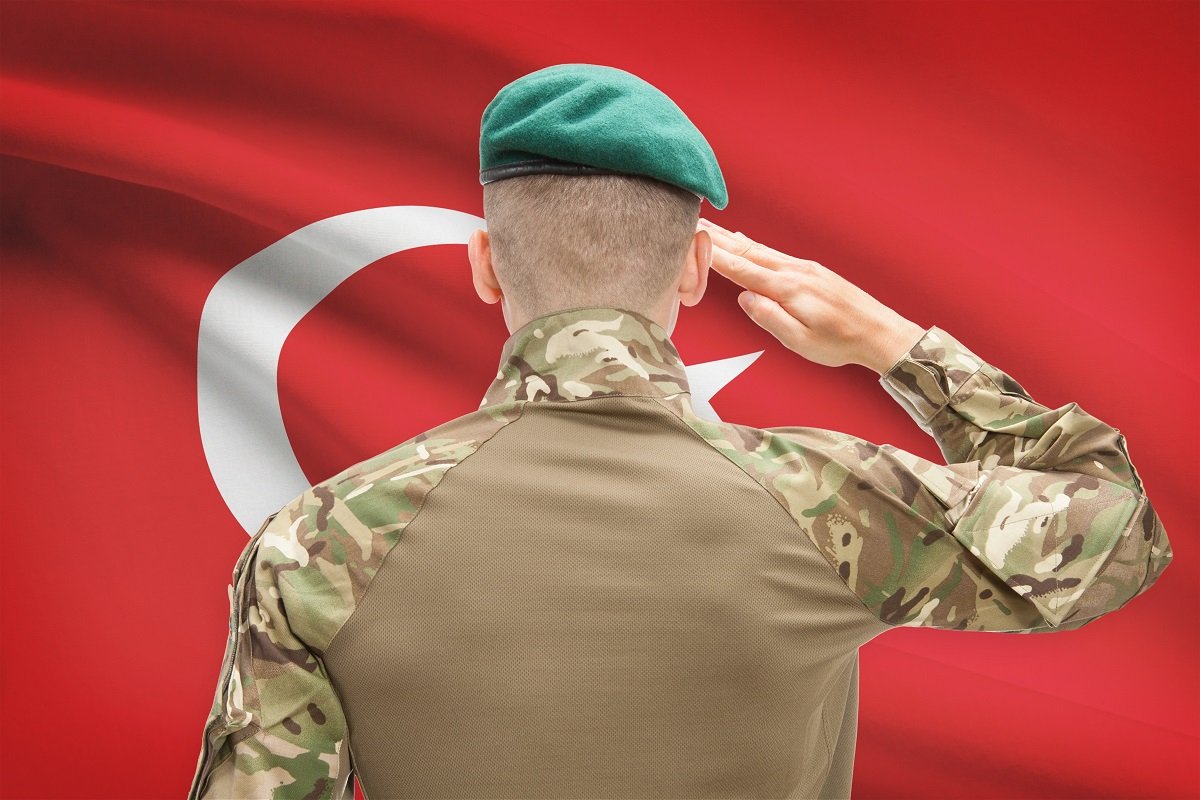Four on-duty military officers have allegedly surrendered to Turkish police in capital Ankara on Wednesday and reportedly confessed to being linked with the Gülen movement. It was reported that among the four surrendered Turkish military officers, three were lieutenant colonels, while the other was a major.
According to a report by state-run Anadolu news agency, the military officers from the Turkish Land and Naval Forces Command surrendered to Ankara’s Security Directorate following testimony from former Captain Burak Akın. Akın has also reportedly admitted that he was a member of the Gülen movement on Dec. 27, 2017. Akın, who had surrendered to police, was released under judicial control following his testimony against the Gülen movement.
A police officer who was one of three crewmembers of a helicopter that carried Turkish autocratic President Recep Tayyip Erdoğan and his family from a hotel to the airport during the coup attempt in July 15, 2016 had also been arrested over alleged links to the Gülen movement but later released.
Barış Yurtseven, the pilot of the plane that brought President Erdoğan from Dalaman to İstanbul on the night of the controversial coup attempt, was also fired from Turkish Airlines (THY) in February over alleged links to the faith-based Gülen movement.
Nineteen police officers who were responsible for Erdoğan’s security were dismissed over alleged Gülen links following the failed coup attempt.
Furthermore, Levent Y., an F-16 pilot who was expelled from the Turkish Armed Forces (TSK) in the aftermath of a coup attempt on July 15, 2016, has been detained by police while selling waffle at a restaurant in Konya province and later put in pre-trial detention by a Turkish court, the Hürriyet daily reported.
Levent Y. and three of his colleagues who were fired from the military after the coup attempt has opened a coffee shop in the Selçuklu district of Konya. A group of police officers on December 15, 2017, raided the cafee shop and detained the pilot as part of an investigation launched by the Konya Chief Prosecutor’s Office. Levent Y. was arrested by the court on December 28, 2017 and sent to prison on coup charges.
Meanwhile, Greece’s Migration Minister Ioannis Mouzalas reportedly said during a program aired on Greek TV channel Skai on Wednesday that there were “strong signs” that the eight Turkish ex-soldiers, who applied for asylum in Greece in the aftermath of the 2016 coup attempt in Turkey, were involved in the coup bid
Earlier this week, a Greek court suspended a grant of asylum given to one of the soldiers, saying it would make a final decision on the fugitive on Feb. 15. Süleyman Özkaynakçı, who co-piloted a helicopter out of Turkey with seven other soldiers aboard on July 16, 2016, had been granted asylum in late December by an independent committee.
Mouzalas said that the Greek government had appealed against the committee’s decision in order to ensure that real coup plotters were not given the right to asylum. “As a state governed by the rule of law, we appealed against this decision,” the Greek minister said, noting that they had not objected to the “previous 1,500 rulings.” “What is the difference? There are strong findings that these people were coup plotters,” Mouzalas said.
Noting that the Greek government was following a specific legal procedure in the case of the fugitive ex-soldiers, Mouzalas said that the Greek courts would have the final say on the matter.
Turkey survived a controversial military coup attempt on July 15, 2016 that killed 249 people. Immediately after the putsch, the Justice and Development Party (AKP) government along with President Erdoğan pinned the blame on the Gülen movement despite the lack of any evidence to that effect.
Fethullah Gülen, who inspired the movement, strongly denied having any role in the failed coup and called for an international investigation into it, but President Erdoğan — calling the coup attempt “a gift from God” — and the government initiated a widespread purge aimed at cleansing sympathizers of the movement from within state institutions, dehumanizing its popular figures and putting them in custody.
One hundred thirty generals and admirals in the Turkish military were either dismissed or suspended as part of the widespread purge following the failed coup.
The government has been at the center of criticism for turning the Turkish forces into a political Islamist military in line with the wishes of President Erdoğan.
In February Defense Minister Fikri Işık said 30,000 new recruits would be enlisted in the Turkish military.
A month later Işık declared that the ruling Justice and Development Party (AKP) government had dismissed a total of 22,920 military personnel (6,511 officers and 16,409 cadets) after the coup attempt although the Turkish military stated on July 27 that only 8,651 military members including cadets and conscripts took part in the failed coup.
The Cumhuriyet daily reported in March that the government planned to investigate 90,000 more military personnel over links to the Gülen movement.
“If it was a coup perpetrated by the Gülen movement and 22,920 military personnel were dismissed for their connections to the movement as Erdoğan and the government assert, why did only 8,651 military members participate in the coup?” is a question being asked by critics.
Some find the Turkish government’s efforts to Islamicize the Turkish army alarming and warn that NATO risks having a member army filled with extremists.
In February Henri Barkey, director of the Middle East Program at the Washington-based Wilson Center, said that many generals purged by the Turkish government are pro-NATO and pro-American, saying this could create a shift in Turkey-NATO relations.
Turkey has suspended or dismissed more than 150,000 judges, teachers, police and civil servants since July 15. Turkey’s Interior Minister announced on December 12, 2017 that 55,665 people have been arrested. Previously, on December 13, 2017, The Justice Ministry announced that 169,013 people have been the subject of legal proceedings on coup charges since the failed coup.















